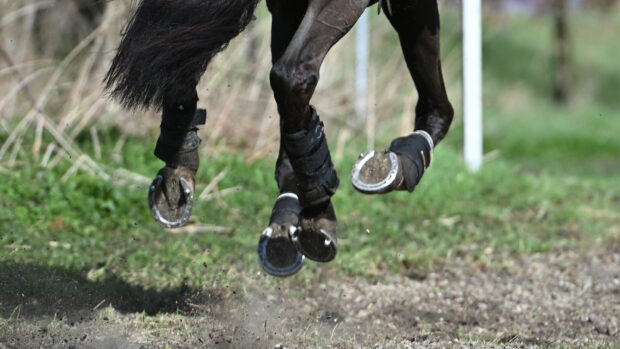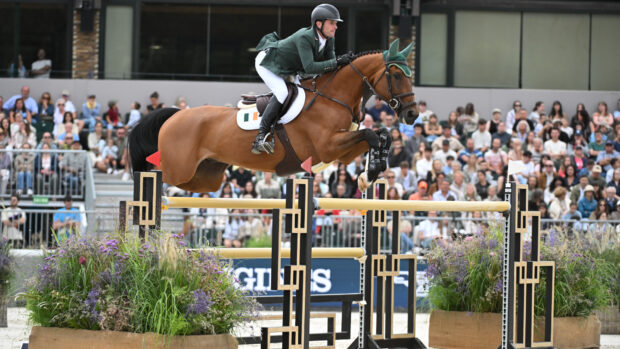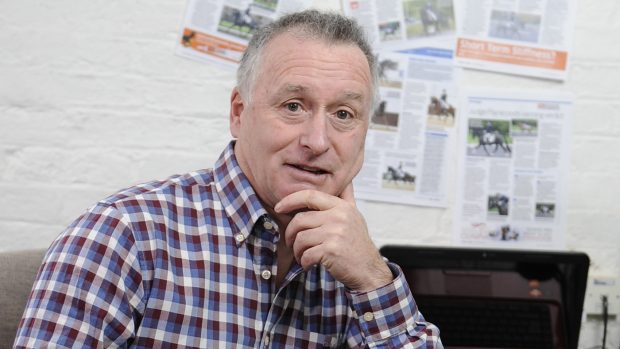MANDATORY vaccination against equine herpes virus (EHV) will not be introduced by the FEI, as there is “insufficient scientific justification”.
During the 2022 FEI sports forum it was announced that mandatory vaccination was being considered by the FEI, but it was explained that none of the current vaccinations against EHV claim to prevent against the neurological form of the disease. The FEI said two proposals would be considered; keeping the situation under review, and deferring a rule proposal to the 2023 FEI general assembly at the earliest – or implementing mandatory vaccination from 2025 in countries with available licensed vaccines(news, 5 May).
The FEI has now published the final part of the report on the 2021 EHV-1 European outbreak, in which 18 horses died and competition was halted for six weeks. The report looks at “the way forward”, and includes feedback from the FEI veterinary epidemiology working group and veterinary committee.
“Although not unanimous, the consensus among the group was that there is currently insufficient scientific justification to recommend mandatory vaccination,” an FEI spokesman said.
“As current vaccines are also ineffective against the neurological form of EHV-1, it was agreed further research needs to take place to allow the development of improved vaccines.”
The FEI spokesman said the group was unanimous that the implementation of enhanced biosecurity measures would be the “best financial investment currently”, raising the overall standard at events and also providing horses with protection against other infectious diseases, as well as neurological EHV-1. The veterinary committee “strongly supports personal choice” and “stressed” national federations and stakeholders must have the right to vaccinate their horses against the disease.
The report discussed that risk classification of FEI events is “key” and will allow resources to be allocated where they are most needed, such as high-risk events with many horses on site for weeks. It said this approach would be adapted to individual events, and the application of preventive measures would depend on the event and discipline. Currently all jumping tours are considered “high risk” – although some tour venues have smaller stabling units with “excellent” biosecurity protocols – so identifying the higher-risk events within tours is “vital”.
FEI veterinary director Göran Åkerström said the publication of the final part of the report is a “significant milestone”.
“It marks the end of an important – and very sad – chapter in the history of our community, but a chapter from which we have all learned so much,” he said.
FEI president Ingmar De Vos thanked the individuals and organisations that gave time and financial resources to help through the “crisis”.
“Tragically there were horses lost, but without that incredible community-wide support I believe the outcome could have been very different,” he said. “It is important we now have much stronger biosecurity measures in place and a clear way forward mapped out which offers the best possible protection against infectious disease outbreaks for the future.”
You might also be interested in:

Mandatory equine herpes vaccinations for sport horses under consideration

‘Mistakes were made’: poor decisions and human error contributed to European EHV-1 outbreak

Subscribe to Horse & Hound magazine today – and enjoy unlimited website access all year round
Horse & Hound magazine, out every Thursday, is packed with all the latest news and reports, as well as interviews, specials, nostalgia, vet and training advice. Find how you can enjoy the magazine delivered to your door every week, plus options to upgrade your subscription to access our online service that brings you breaking news and reports as well as other benefits.




